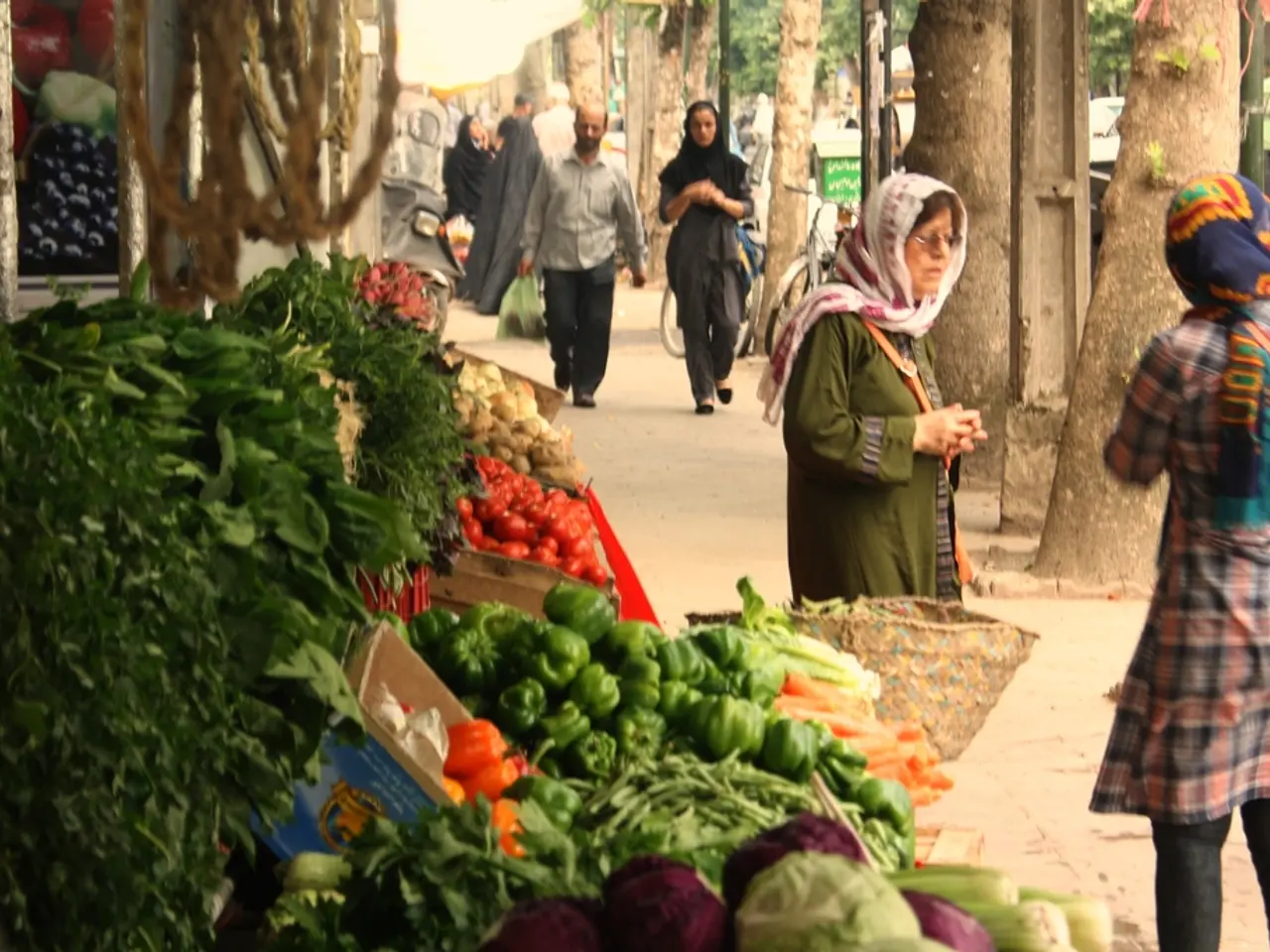Nurturing a Perfect Sleep Space for Infants: Insights from Nigeria
In the vibrant and diverse nation of Nigeria, parents are constantly seeking ways to ensure their babies receive the best care possible. A key aspect of this care is creating an ideal sleep environment that promotes healthy growth, development, and overall well-being. By blending scientifically backed strategies with an understanding of Nigerian cultural contexts, parents can establish a safe, comfortable, and nurturing sleep space for their little ones.
Sleep plays a pivotal role in a baby's development, enhancing learning abilities, fostering brain development, and aiding memory consolidation, emotional regulation, and immune system functioning [1]. To create an optimal sleep environment, parents can follow several evidence-based practices.
Firstly, a safe sleep space is essential. This means placing the baby in their own crib or bassinet, lying on their back on a firm mattress, with no loose blankets or toys to reduce the risk of Sudden Infant Death Syndrome (SIDS) [1].
Natural, breathable bedding is another crucial factor. Using cotton, bamboo, or merino fabrics for bedding and swaddles helps avoid overheating, as babies cannot regulate their temperature well [1][3]. Maintaining an ambient room temperature of 18-20°C (64-68°F) keeps the baby warm but not hot, and checking the baby's core temperature rather than their hands or head is advisable [3].
Swaddling babies in natural fiber swaddles reduces startle reflex waking, while sleeping bags, especially for mobile babies, can provide added security [1][3]. To promote uninterrupted sleep, ensuring the room is dark and quiet or using white noise is beneficial [1][5]. Establishing regular bedtime routines provides predictability that helps the baby feel secure and sleep better [5].
In hotter regions of Nigeria, natural breathable fabrics and well-ventilated sleep spaces are even more critical. Traditional practices such as co-sleeping may be common, but healthcare advice generally emphasizes independent sleep surfaces for safety. Education blending cultural respect with scientific recommendations on safe co-sleeping alternatives can be helpful [2].
Family involvement and communal care practices in Nigeria can support the establishment of consistent routines and sleep environments that respect cultural values around caregiving. Breastfeeding, which has been found to help babies sleep better due to sleep-inducing properties and hormones in breast milk, can also be integrated into these routines [6].
Adequate rest supports cognitive and physical development in infants. Gradually introducing alternative soothing techniques that do not involve props, such as using a lovey or playing soft music, can help the baby develop self-soothing skills [4]. Calming scents like lavender can promote relaxation [5].
By integrating these global best practices with sensitivity to Nigerian cultural contexts—such as considering typical home environments, available materials, and family sleeping customs—parents can create an ideal, safe, and comfortable sleep environment that promotes healthy sleep for their babies. Encouraging breastfeeding mothers to establish a consistent bedtime routine with their baby further enhances this nurturing environment.
- In Nigeria, where parents strive to give their babies the best possible care, a key focus is on creating an ideal sleep environment that encourages healthy growth and overall well-being.
- The role of sleep in a baby's development is significant, as it influences learning, brain development, memory consolidation, emotional regulation, and immune system functioning.
- To ensure a safe sleep space, babies should be placed in their own crib or bassinet, lying on their back on a firm mattress, without loose blankets or toys, to minimize the risk of Sudden Infant Death Syndrome.
- Natural, breathable bedding made from cotton, bamboo, or merino fabrics is important, as it helps avoid overheating and maintains an ambient room temperature of 18-20°C.
- To avoid waking due to the startle reflex, swaddling babies in natural fiber swaddles can provide comfort, while sleeping bags offer added security for mobile babies.
- Creating a dark, quiet room or using white noise, implementing regular bedtime routines, and utilizing calming scents like lavender can promote uninterrupted sleep.
- In warmer African regions, natural breathable fabrics and well-ventilated sleep spaces are essential, while traditional practices such as co-sleeping may need to be adapted for safety.
- Education that respects cultural values while offering scientifically backed recommendations can help parents navigate safe co-sleeping alternatives in Nigeria.
- Family involvement and communal care practices in Nigeria can support consistent routines and sleep environments that address cultural values.
- Breastfeeding, which aids sleep through sleep-inducing properties and hormones, can be integrated into these consistent routines, further nurturing the baby's development.




